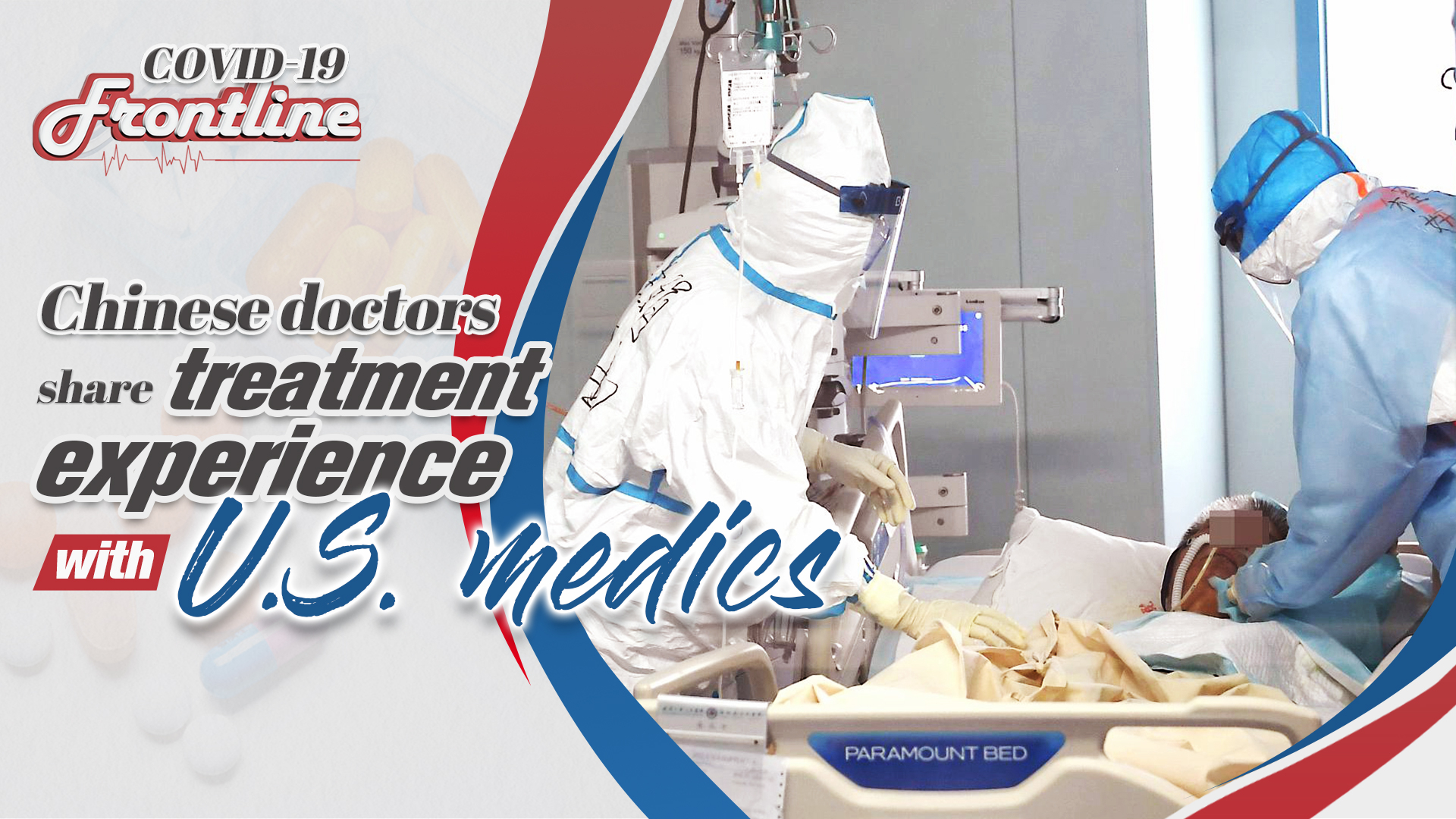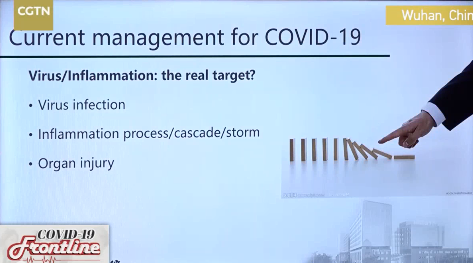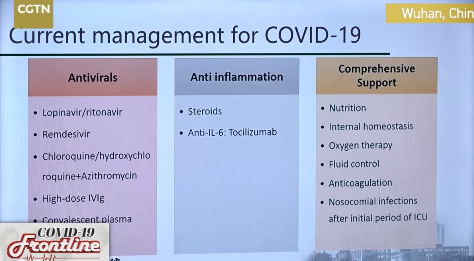03:52

Editor's Note: The World Health Organization (WHO) declared COVID-19 a pandemic on March 12. As of April 4, about 200 countries and regions have confirmed over 1,000,000 cases, with more than 50,000 deaths, according to the WHO. CGTN's live program "COVID-19 Frontline" invites medical workers and experts from central China's Wuhan and all over the world to share their experiences and take questions from social media users, in the hope of providing more information to those who are battling against the pandemic.
As the COVID-19 pandemic continues to ravage the world and threaten people's lives, treating infected patients effectively has been one of the top concerns for medical workers around the world.
In the latest episodes of CGTN's live program "COVID-19 Frontline," Chinese doctors who have been treating critically ill patients in the country's hardest-hit city Wuhan since February, shared firsthand experience with their U.S. counterparts.
Friday and Saturday's programs brought together Chinese medical professionals from Zhongnan Hospital of Wuhan University and Peking Union Medical College Hospital (PUMCH), which are China's top hospitals, and U.S. doctors from the National Institutes of Health, Johns Hopkins University and Swedish Medical Center.
Live: Doctors from Wuhan share COVID-19 experience with U.S. medics
Live: Chinese frontline ICU doctor shares COVID-19 treatment experience with U.S. medical workers
COVID-19 patients with various conditions should be treated differently
"We should treat different patients at different stages with different measures," said Guo Fan, a physician of Department of Cardiology at PUMCH.
He explained how the virus attacks the human body: "Firstly, the body gets infected by the virus. Then, the infection triggers the inflammation process, which leads to further injuries of multiple organs."
"The virus infection is just the very beginning of the disease, just like the first fallen domino. So, just focus on the virus infection is not enough. And I don't expect too much from antiviral agents alone," he added.

Chinese doctors from Peking Union Medical College Hospital present how the novel coronavirus attacks the human body./CGTN Screenshot
Chinese doctors from Peking Union Medical College Hospital present how the novel coronavirus attacks the human body./CGTN Screenshot
Therefore, a very important question for doctors is whether the virus or inflammation is the real target of the treatment, he said. And the doctors at PUMCH have summarized different treating methods for patients with different conditions:
For mild patients, just rest and keep a steady oxygen supply, and the disease is self-limiting, which means the patients will recover given a certain period of time relying on their own immune system.
For patients with moderate symptoms, take antiviral agents such as Lopinavir, Remdesivir and Chloroquine as early as possible. And if a patient's condition deteriorates, anti-inflammation agents like Steroids and Abti-IL-6 can be used for a short period of time.
For severe patients, there is no magic antidote. Only comprehensive supportive care including nutrition, internal homeostasis, oxygen therapy, fluid control and so on will help.
"Actually, for most patients in our ICU for more than two weeks, the viral loads are basically undetectable. That means the patient is critically ill even if the virus has been eliminated," the doctor noted.

Chinese doctors from Peking Union Medical College Hospital present treatment of COVID-19 patients./CGTN Screenshot
Chinese doctors from Peking Union Medical College Hospital present treatment of COVID-19 patients./CGTN Screenshot
As of Saturday, the U.S. has reported more than 270,000 confirmed COVID-19 cases, which is the largest number of patients in a single country worldwide, and the death toll has exceeded 7,000.
Meanwhile, the epidemic in China has been largely put under control after over three months of concerted efforts across the country. There are about 1,500 existing confirmed patients as of Saturday, with 331 in critical condition, mostly in Hubei Province, the epicenter of the outbreak in China.
In previous programs over the past two weeks, Chinese health experts and doctors have answered questions and shared their experience to international medics with regard to a wide range of topics, such as how to protect medical workers, the effects of traditional Chinese medicines (TCM), and how different antivirals work.